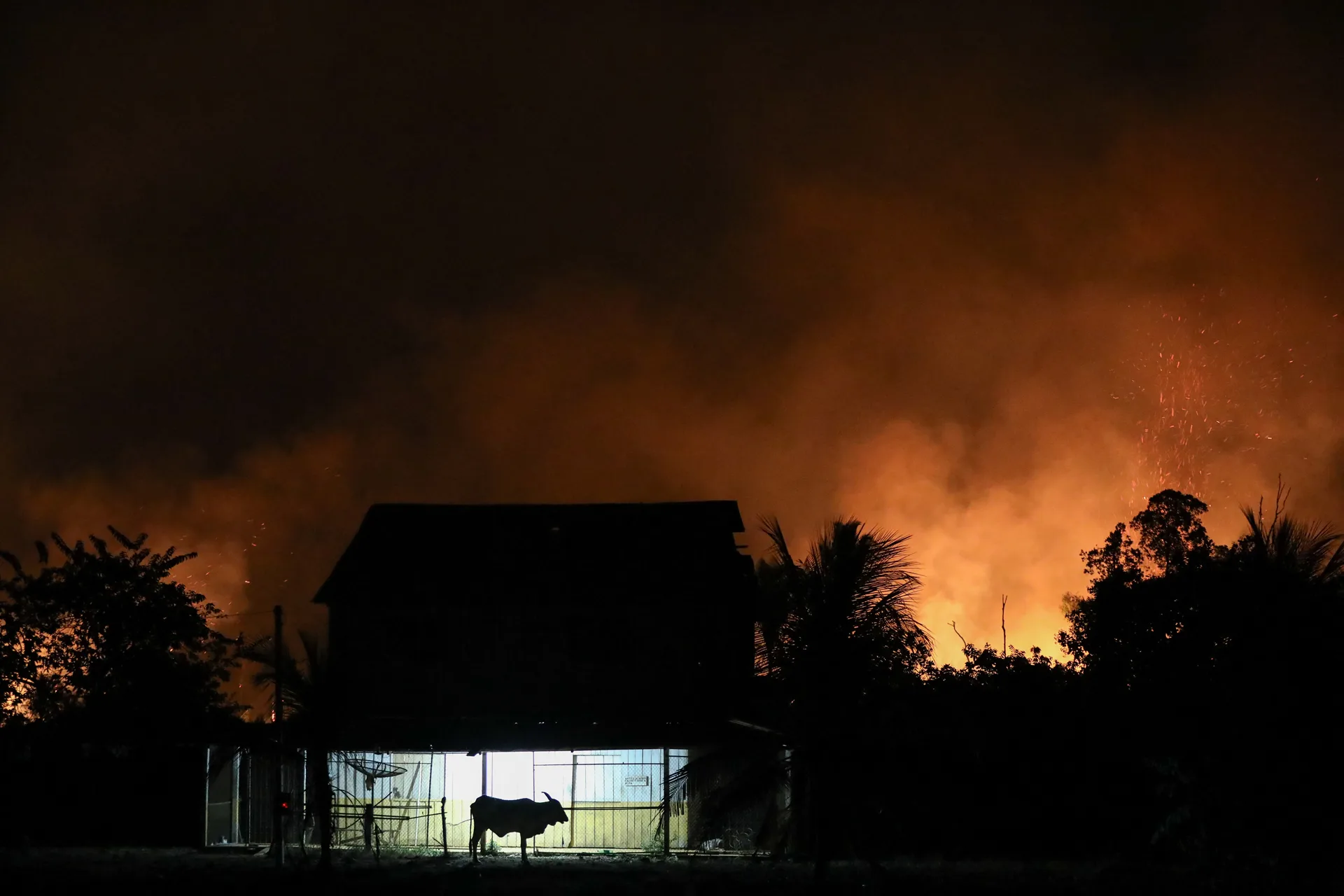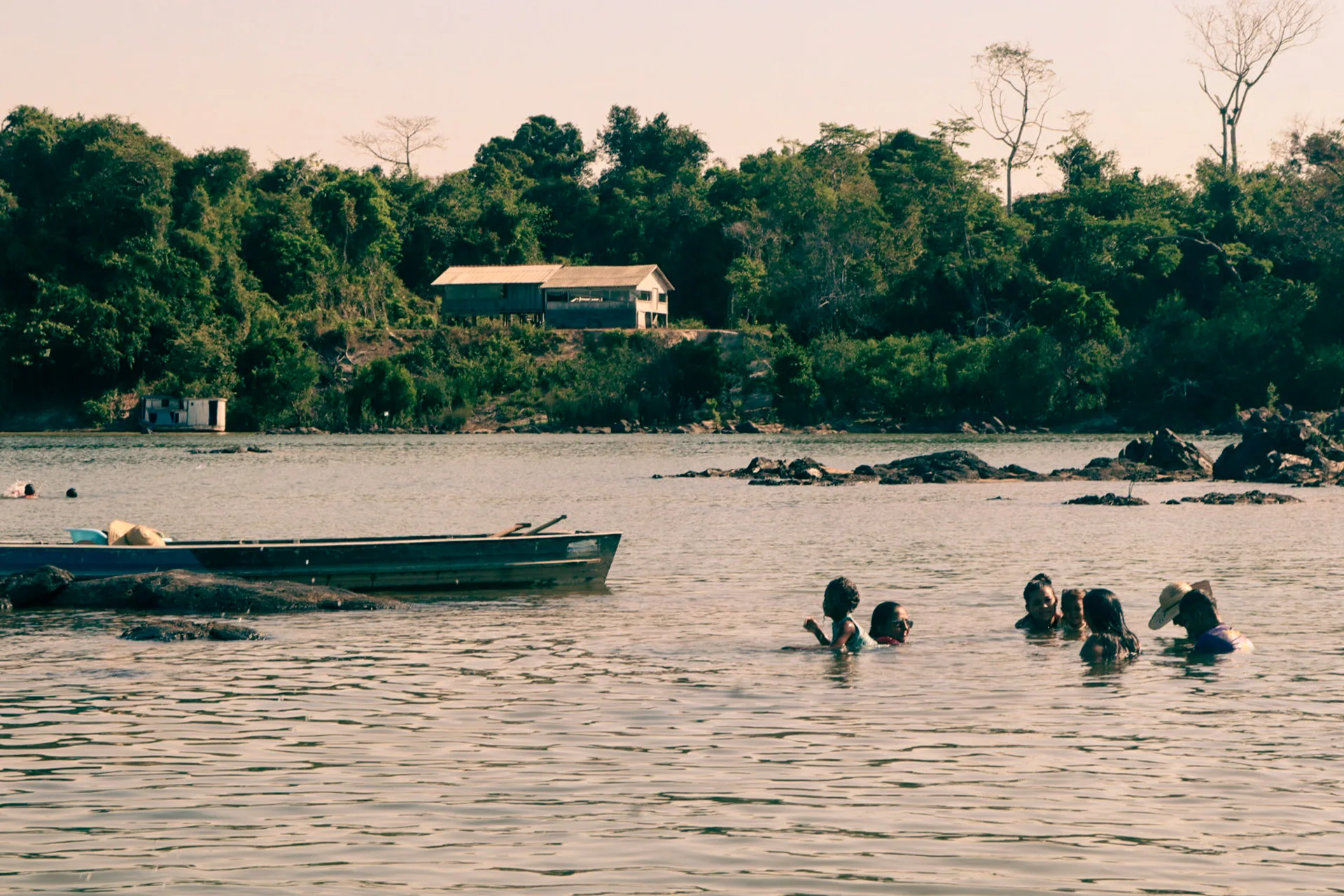“We are the answer!” There could not be a clearer or more positive statement on the climate and nature crises than the one issued by the Indigenous peoples of Brazil at last week’s United Nations COP16 biodiversity conference in Cali, Colombia. And it could not be better timed as an antidote to the jaw-droppingly terrible decision of many national governments, including Brazil, to expand oil and gas production although – as we show in this issue – it is worsening droughts, intensifying fires and floods, contaminating rivers and causing other sharply deteriorating signs of climate breakdown.
This continued devotion to fossil fuels is so wrong in today’s messed up world that it feels surreal. How can political leaders not respond? Are they living in a different world? It is also astonishingly hypocritical as these same governments are aware of the dangers of global heating to their people, yet they are neglecting their promise to cut emissions.
More evidence of this abysmal failure was recently revealed by the United Nations, which said greenhouse gases – from burning forests, coal, oil and gas – are rising faster than the average for the past decade.
So – despite a second year of record global heat, despite countless deaths and enormous economic losses – the world’s government have allowed the cause of these catastrophes to get worse. It is so mind-boggling that the UN seems to be running out of vocabulary to describe how serious the danger is. UN Secretary-General António Guterres’ has declared “code red for humanity.” UN executive climate secretary Simon Stiell has warned “we have two years to save the world.” And now the head of the UN Environment Programme, Inger Andersen, insisted “It’s climate crunch time for real.”

Forest fires in Amazonas state: governments won’t give up fossil fuels even though they know greenhouse gases only worsen the climate crisis. Photo: Michael Dantas/AFP
Next week, the world will come together to try to find answers at the latest UN climate summit, COP29 in Baku, Azerbaijan. As usual, heads will be shaken, speeches will be made and money will be promised. But, also as usual, there is little prospect of real change. Azerbaijan is the third climate COP host in a row that plans to increase oil and gas production. Next year’s host Brazil also intends to boost production. How can the world cut emissions when the agenda is being set by those who want to expand?
The entire system needs radical change. For this reason, SUMAÚMA supports calls for a more powerful indigenous presence in COP30 in Belem. They need a decision-making role so they can fight the climate battle more fiercely. As the coalition of indigenous organisations declared in their latest statement: “We know who is setting the world on fire and the violent impact this has produced in our territories: severe droughts, forced isolation, diseases, lack of food, invasions, conflicts, and deaths,” they said. “In the face of the imminent collapse of the sustenance of life on the planet, strong and effective actions must be taken. While governments continue to seek to mediate insufficient targets and empty funding, we want to announce that, from now on, there will only be peace with Nature if we openly declare war against fossil fuels and any other predatory project that threatens life on the planet.”
In this issue of SUMAÚMA, you will understand why this is necessary. We have an interactive map of the devastating droughts in the Amazon, a report from the frontline of the fires by Jaqueline Sordi, a day-in-the-COP16 story of Carlos Nobre, the Brazilian climate scientist who was the first to warn that the Amazon is approaching a tipping point, and a column by Sidarta Ribeiro on how we must rethink the city for an era of climate collapse. All of these articles are powerful, but perhaps the most poignant and evocative is an investigation by Wajã Xipai, of why his village’s river – the Iriri – is turning green. Wajã – a member of the Xipaya indigenous community – is part of our Micélio co-formation program and this evocative report shows why we are learning so much from him as a story and truth teller.

The waters and people of a place: to understand how the health of this body of water has changed, Wajã Xipai had to drown himself—figuratively speaking. Photo: Wajã Xipai/SUMAÚMA
Text: Jonathan Watts
Fact-checker: Plínio Lopes
Proofreader (Portuguese): Valquíria Della Pozza
Portuguese translation: Denise Bobadilha
Spanish translation: Meritxell Almarza
Photo editor: Lela Beltrão
Copyediting and finishing: Natália Chagas
Editorial workflow coordination: Viviane Zandonadi
Editor-in-chief: Talita Bedinelli
Editorial director: Eliane Brum





